At the “Summit for Peace in Ukraine” held by Western leaders in Switzerland’s Bürgenstock Resort two weeks ago, Polish President Andrzej Duda called for ethnic minorities in the Russian Federation to break off into independent states so that they can be “decolonized”—adding a unique element of cliche to a new phase of escalation in the West’s proxy war against Russia1. This statement by President Duda comes off the heels of a recent announcement in 2024 by President Joe Biden’s administration in America that they have lifted the Unites States government’s formal ban on transferring weapons to Ukraine’s infamous neo-Nazi Azov Battalion—adding credibility to charges made in the past by the Kremlin that the U.S government is sponsoring the growth of Ukranian neo-Nazism in close coordination with the North Atlantic Treaty Organization (NATO) in an effort to balkanize Russia2.
Shortly before his announcement of the Russian Special Military Operation (SMO) in February of 2022, President Vladamir Putin made reference to the rise of Russophobic violence in Ukraine that has emerged since the 2014 Maidan coup put the country under the control of Nazi inspired fascists:
A wave of violence swept Ukrainian cities, including a series of high-profile and unpunished murders. One shudders at the memories of the terrible tragedy in Odessa, where peaceful protesters were brutally murdered, burned alive in the House of Trade Unions. The criminals who committed that atrocity have never been punished, and no one is even looking for them… The policy to root out the Russian language and culture and promote assimilation carries on. The Verkhovna Rada has generated a steady flow of discriminatory bills… Under the laws on education and the Ukrainian language as a state language, the Russian language has no place in schools or public spaces, even in ordinary shops… Not a single day goes by without Donbass communities coming under shelling attacks. The recently formed large military force makes use of attack drones, heavy equipment, missiles, artillery and multiple rocket launchers. The killing of civilians, the blockade, the abuse of people, including children, women and the elderly, continues unabated… In this regard, I consider it necessary to take a long overdue decision and to immediately recognize the independence and sovereignty of the Donetsk People's Republic and the Lugansk People's Republic3.
Having actively tried to join NATO for years leading up to Russia’s launch of the SMO, in 2021 Ukrainian ambassador to Germany Andriy Melnyk told the national public radio network Deutschlandfunk that President Volodymyr Zelensky’s administration would consider acquiring nuclear weapons if their demands to be formally accepted into NATO’s anti-Russian military alliance were rejected instead4. Upon announcing the SMO after giving recognition to the briefly independent Donetsk and Lugansk People's Republics, President Putin noted the pro-Western Ukranian government’s previously expressed aspirations to gain possession of nuclear weapons when he outlined the basis for his decision to confront their Western-backed forces in Ukraine:
If we look at the sequence of events and the incoming reports, the showdown between Russia and these forces cannot be avoided. It is only a matter of time. They are getting ready and waiting for the right moment. Moreover, they went as far as aspire to acquire nuclear weapons. We will not let this happen… The people’s republics of Donbass have asked Russia for help… In this context, in accordance with Article 51 (Chapter VII) of the UN Charter, with permission of Russia’s Federation Council, and in execution of the treaties of friendship and mutual assistance with the Donetsk People’s Republic and the Lugansk People’s Republic, ratified by the Federal Assembly on February 22, I made a decision to carry out a special military operation… The purpose of this operation is to protect people who, for eight years now, have been facing humiliation and genocide perpetrated by the Kiev regime. To this end, we will seek to demilitarize and denazify Ukraine, as well as bring to trial those who perpetrated numerous bloody crimes against civilians, including against citizens of the Russian Federation… It is not our plan to occupy the Ukrainian territory…5.
An estimated 14,000 people died between the Ukrainian army’s campaign against the Lugansk and Donetsk People’s Republics—abbreviated LPR and DPR—and the beginning of the Russian SMO6. After Ukraine’s U.S-backed coup toppled the country’s constitutionally derived government in 2014, the newly empowered far-right Ukranian regime embarked on an effort to transform the country into a bastion of neo-fascism. Despite the widespread censorship of Russian media in Western countries, one can still find various accounts of President Vladamir Putin and the Russian government raising concerns about these developments over the span of years. For example, early on in 2014 the Russian Foreign Ministry expressed concern about violent actions being taken by Ukraine’s post-coup government against fellow Ukranian Nationals of ethnic Russian descent who disputed that regime’s legitimacy—publicly announcing that “We are deeply concerned over the military operation launched by the Ukrainian special forces with support by the army…”7. In response, then White House spokesman Jay Carney did not deny the Kremlin’s allegations of state-sponsored terror being directed at ethnic Russians living primarily in the eastern region of the country, saying that "The Ukrainian government has the responsibility to provide law and order and these provocations in eastern Ukraine are creating a situation in which the government has to respond"8. Indeed, Ukraine’s post-coup regime has responded to the resistance by the people of Donbass to their fascism with brutality.
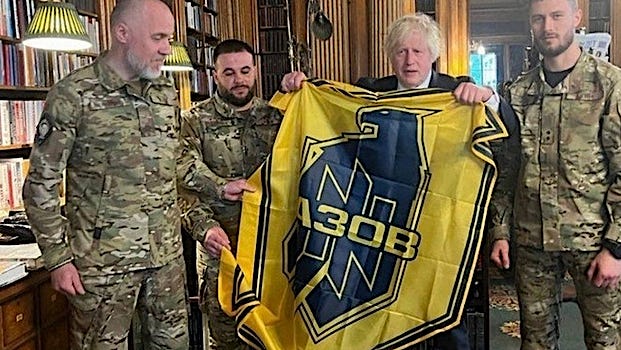
As early as October 2014, research done by Human Rights Watch confirmed that the Ukranian government has used cluster bombs against the DPR, despite that form of weaponry being banned by 114 countries via treaty because of the unique danger that they pose to civilians9. In consistency with this behavior, Ukraine has not yet joined any treaty banning them10. Among other acts of terror that the Ukranian government has directed at ethnic Russians, Marco Pertile and Sondra Faccio explain in the academic law journal called Review of European, Comparative & International Environmental Law (RECIEL) that the Ukranian government has weaponized access to water over the course of their war against those who from their perspective should be considered their own citizens in the Donbass and Crimea:
In Donbass, water facilities located along the contact line have become a constant shelling target by State armies and armed groups, leaving 3.4 million people in need of sustainable access to drinking water. In Crimea, Ukraine’s blockade of the North Crimea Canal (the Canal) plunged the region into chronic water shortage11.
Moreover, there is a formidable argument that the regime in Kiev doesn’t even consider Ukrainians of Russian ethnic or linguistic descent as being “fellow citizens” at all. Having spent time on the ground in Ukraine near the frontline of combat since the emergence of the war in Donbass, journalist Eva Bartlett reported in 2022 that:
Smeared, stigmatized, and lied about in Western media propaganda, the mostly Russian-speaking people of the Donbass region were being slaughtered by the thousands in a brutal war of “ethnic cleansing” launched against them by the neo-Nazi regime in Kiev, which the U.S. installed after the CIA overthrew Ukraine’s legally elected president in a 2014 coup… Ukrainian nationalists openly declare they view Russians as sub-human. School books teach this warped ideology. Videos show the extent of this mentality: Teaching children not only to also hate Russians and see them as not humans, but also brainwashing them to believe killing Donbass residents is acceptable. The Ukrainian government itself funds neo-Nazi-run indoctrination camps for youths12.
Asserting his disbelief that most residents in the Donbass would rather “live in Russia” than Ukraine, so-called President Volodymyr Zelensky said in a 2019 interview with Spiegel that:
Those who are for Russia can move away, because Russia is currently illegally distributing Russian passports. Every person has the right to choose where he wants to live… But to say on the territory of Ukraine that I am a citizen of Russia and this is my soil, I think that is wrong and unfair. This won't do. As far as the lost ones are concerned: If someone has a Ukrainian passport and then also accepts a Russian passport, and gets social support from here and there, then he has gone astray…13.
Writing in the Donbass Insider, DPR-based journalist and citizen Christelle Néant responded to Zelensky’s comments, saying:
… Zelensky calls on those who feel Russian and not Ukrainian (and who represent a majority of the Donbass population) to leave their lands, which is called a call for ethnic cleansing… Moreover, when he says that people do not have the right to feel Russian on the territory of Ukraine, I would remind once again that these territories have been Russian longer than they have been Ukrainian, and that just because Ukrainian nationality is affixed to a passport does not change the person’s real ethnicity… Zelensky therefore denies the inhabitants of Donbass the right to affirm their culture, ethnicity, and language. This is far from being the best way to convince them that Kiev will not carry out ethnic cleansing in the Donbass if Ukraine regains control over it14.
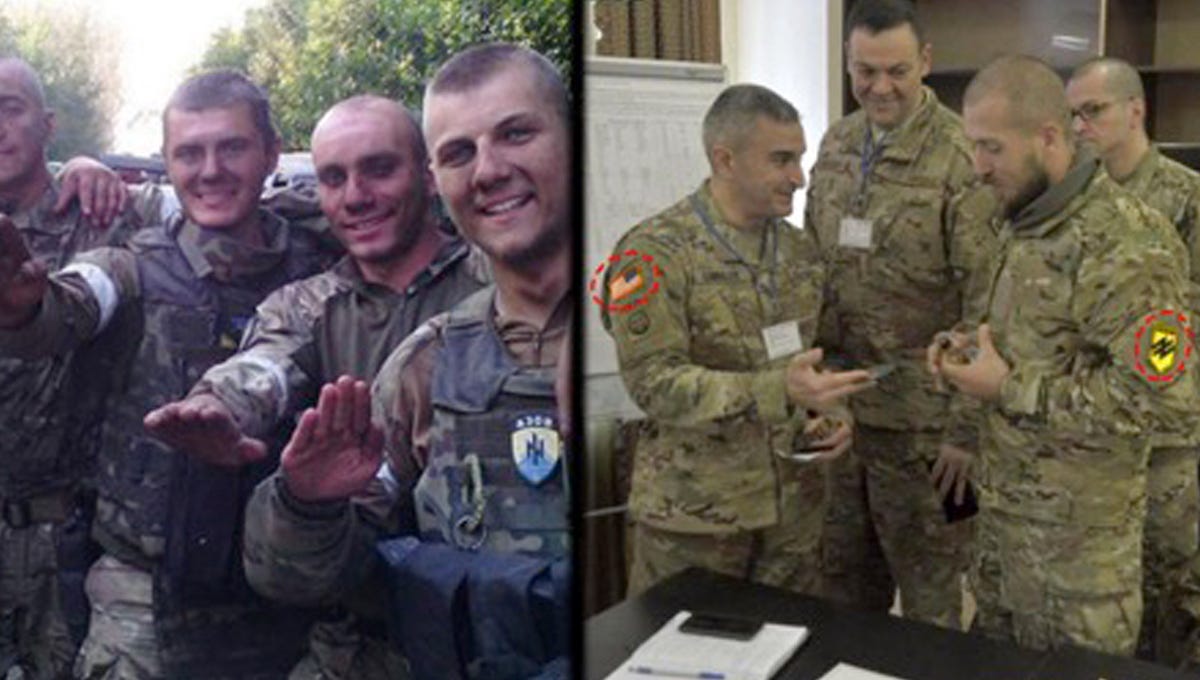
Echoing the findings reported by Bartlett and Néant, American journalist and Berkshire Communist General Secretary Fergie Chambers recalled a similar situation from his time visiting the Donbass during the early stages of the Russian SMO:
I spend some of April, all of May, and some of June in the Donbass. I tour front-line cities, alone and with military transports; I meet with people everywhere… In Mariupol, we see destruction on an inhuman level. Over and over, the locals there tell us that the Ukrainian Azov battalion, who at the time of my visit are still in the Azovstal bunker, has occupied the city for years with an iron fist; they tell us that when the Russians came nearer, Azov laid waste to the city, not allowing civilians any safe escape corridors, and threatening them with death should they attempt to flee… Everywhere this narrative is repeated, as is the theme of Kiev as an occupier, and Moscow as the liberator. We see the huge influx of reconstruction and humanitarian aid brought in from Russia, while all Western organizations seem to have abandoned Donbass15.

According to the International Federation of Red Cross and Red Crescent Societies (IFRC), the world’s largest humanitarian network, between 2014 and 2020 over one million people from Ukraine moved to Russia16. By the 16th of February 2022—two days before Russian President Putin recognized the independence of the LPR and DPR—the Ukranian military had increased its shelling of the Donbass by a factor of 100 within four days—going from five bombings in a day for Donetsk and 71 for Lugansk to 553 and 860 in a day respectively by February 19th17.
Revisiting the recent call by Polish President Duda to balkanize Russia—it is worth noting that there have been suggestions contained within policy statements made by the U.S government in the past alluding to the partitioning aspirations that he has now come to openly espouse. On June 23rd, 2022, the U.S-sponsored Commission on Security and Cooperation (CSCE) in Europe held a policy briefing titled Decolonizing Russia: A Moral and Strategic Imperative in which the CSCE declared that “Serious and controversial discussions are now underway about reckoning with Russia’s fundamental imperialism and the need to “decolonize” Russia for it to become a viable stakeholder in European security and stability”18. Pointing out the absurdity of the rhetoric being used in the CSCE’s briefing, Substack author Niccolo Soldo writes:
I am fond of saying that the genius of the United States of America is its ability to absorb, co-opt, and then monetize any trend that comes its way. “Decolonizing Russia” is simply woke terminology for its partition. This symbolizes how the USA has managed to co-opt “Wokeness” for its own foreign policy objectives… Yes, it is hilarious that these fucking assholes have the temerity to ignore what the U.S.A did to Syria and Libya and instead blame it on the Russians. It is also hilarious that they attack Russia for extinguishing an al-Qaida-led insurgency in Chechnya. However, this takes us away from the main point: the use of woke terminology in the service of US Empire19.

Soldo’s mockery of the U.S government’s use of so-called “woke” rhetoric to brand their imperialism is a tasteful one. To assert that Russia’s decision to launch the SMO is comparable to the history of Western colonialism requires some elaborate mental gymnastics—even when factoring in some legitimately controversial issues related to international law, human rights, and territorial annexation. Russia choosing to use their military power to prevent ethnic cleansing in the Donbass and NATO expansion toward their own border is nothing like the West’s long history of trying to carve out the entire world into their own despotic colonies—at least from the perspective of the intellectually honest. Having doubled the size of their membership from 16 to 32 countries since the end of the Cold War and having involved themselves in brutal military campaigns around the world since the fall of the Soviet Union—NATO’s aggression exemplifies a much stronger basis for charges of imperial ambition than Russia’s management of a conflict that actually presents a significant national security concern for themselves and the region of the world that they inhabit20. In light of the delusional policy rhetoric taken by NATO countries with regard to their proxy war in Ukraine, we might reasonably expect that their war propaganda will continue to intensify even as Ukraine comes closer to defeat. The larger political narrative Western leaders are clinging to in this war show us that in their minds that they understand war as peace and lies as truth—making a rhetorical shift towards toning down their dangerous war propaganda increasingly difficult.
Al Jazeera Staff, “Ukraine peace summit: Why some countries refused to sign the plan,” Al Jazeera, June 17, 2024, https://www.aljazeera.com/news/2024/6/17/ukraine-peace-summit-why-some-countries-refused-to-sign-the-plan; Hindustan Times, “Talks To Disintegrate Russia At Swiss 'Peace' Summit For Ukraine? NATO Nation's Call Amid War Losses,” Hindustan Times, June 18, 2024, https://www.hindustantimes.com/videos/world-news/talks-to-disintegrate-russia-at-swiss-peace-summit-for-ukraine-nato-nations-call-amid-war-losses-101718651646612.html.
Hindustan Times, “US Ends Ban On Ukraine's Controversial Azov Brigade: Alleged Neo-Nazi Link Ignored Over Russia Fear?” Hindustan Times, June 11, 2024, https://www.hindustantimes.com/videos/us-ends-ban-on-ukraines-controversial-azov-brigade-alleged-neo-nazi-link-ignored-over-russia-fear-101718110568227.html; Times Radio, “Russia will be ‘broken into separate states’ by the West | Vladimir Putin,” Times Radio, May 19, 2023, video, 0:00-01:16, https://www.youtube.com/watch?v=m3ia8GAHVSM.
Vladamir Putin, “Address by the President of the Russian Federation,” (speech, The Kremlin, Moscow, February 21, 2022) http://en.kremlin.ru/events/president/news/67828.
Al Jazeera, “Ukraine may seek nuclear weapons if left out of NATO: Diplomat,” Al Jazeera, April 16, 2021, https://www.aljazeera.com/news/2021/4/16/ukraine-may-seek-nuclear-weapons-if-left-out-of-nato-diplomat.
Vladamir Putin, “Address by the President of the Russian Federation,” (speech, The Kremlin, Moscow, February 24, 2022) http://en.kremlin.ru/events/president/news/67843.
Al Jazeera, “Donetsk and Luhansk: What to know about Ukraine’s rebel regions,” Al Jazeera, February 21, 2002, https://www.aljazeera.com/news/2022/2/21/donetsk-and-lugansk-heres-what-we-know-about-rebel-regions.
Russia Today, “Putin: Ukraine’s radical escalation puts it on edge of civil war,” RT - Breaking News, Russia News, World News and Video, April 15, 2014, https://www.rt.com/news/putin-ukraine-military-operation-740/.
Jay Carney, “Press Briefing by Press Secretary Jay Carney,” White House Press Briefing, April 15, 2014, https://obamawhitehouse.archives.gov/the-press-office/2014/04/15/press-briefing-press-secretary-jay-carney-4152014.
Human Rights Watch, “Ukraine: Widespread Use of Cluster Munitions: Government Responsible for Cluster Attacks on Donetsk,” Human Rights Watch, October 20, 2014, https://www.hrw.org/news/2014/10/20/ukraine-widespread-use-cluster-munitions.
Human Rights Watch, “Cluster”.
Sondra Faccio and Marco Pertile, “Access to water in Donbass and Crimea: Attacks against water infrastructures and the blockade of the North Crimea Canal,” Review of European Community & International Environmental Law, vol. 29, no. 1, 2020, pp. 56–66.
Eva bartlett, “Maligned in Western Media, Donbass Forces Are Defending Their Future from Ukrainian Shelling and Fascism,” Covert Action Magazine - Exposing Covert Action Since 1978, November 19, 2022, https://covertactionmagazine.com/2022/11/19/maligned-in-western-media-donbass-forces-are-defending-their-future-from-ukrainian-shelling-and-fascism/.
Christian Esch, "I don't want us to look like beggars,” Spiegel -Foreign Countries, February 12, 2019, https://www.spiegel.de/politik/ausland/wolodymyr-selenskyj-ich-will-nicht-dass-wir-wie-bettler-wirken-a-1299175.html.
Christelle Néant, “UKRAINE WANTS TO REWRITE MINSK-2, AND ETHNIC CLEANSING OF THE DONBASS,” Donbass Insider, April 12, 2019, https://www.donbass-insider.com/2019/12/04/ukraine-wants-to-rewrite-the-minsk-agreements-and-ethnic-cleansing-of-the-donbass/.
Fergie Chambers, “A Donbas Diary: Looking Back at Early Stages of Conflict in Ukraine,” NewsClick, March 18, 2023, https://www.newsclick.in/donbas-diary-looking-back-early-stages-conflict-ukraine?amp#.
Ayuna Batoeva, “Displaced people from Eastern Ukraine’s new life in Russia,” International Federation of Red Cross and Red Crescent Societies (IFRC), December 18, 2020, https://www.ifrc.org/article/displaced-people-eastern-ukraines-new-life-russia.
“Daily and spot reports from the Special Monitoring Mission to Ukraine,” The Organization for Security & Co-operation in Europe (OSCE), Accessed June 24, 2024, https://www.osce.org/ukraine-smm/reports.
*The Organization for Security & Co-operation in Europe (OSCE) is an intergovernmental organization that monitors conflicts and manages early warning systems. They release reports each day on regional security matters.
*From 2022:
Wednesday February 16: number of explosions: 5 in Donetsk and 71 in Luhansk= 76
Thursday February 17: number of explosions: 128 in Donetsk and 188 in Luhansk= 316
Friday February 18: number of explosions: 135 in Donetsk and 519 in Luhansk= 654
Saturday February 19: number of explosions: 553 in Donetsk and 860 in Luhansk= 1,413.
Commission on Security and Cooperation (CSCE) — U.S Helsinki Commision, “DECOLONIZING RUSSIA: A MORAL AND STRATEGIC IMPERATIVE,” CSCE, June 23, 2022, https://www.csce.gov/briefings/decolonizing-russia-a-moral-and-strategic-imperative/.
Niccolo Soldo, “Delusion,” Fisted by Foucault, June 22, 2022, https://niccolo.substack.com/p/delusion.
Notre Dame International Security Center, “The Addition of NATO Members Over Time (1949-2024),” University of Notre Dame, March 23, 2023, https://ndisc.nd.edu/news-media/news/the-addition-of-nato-members-over-time-1949-2023/.





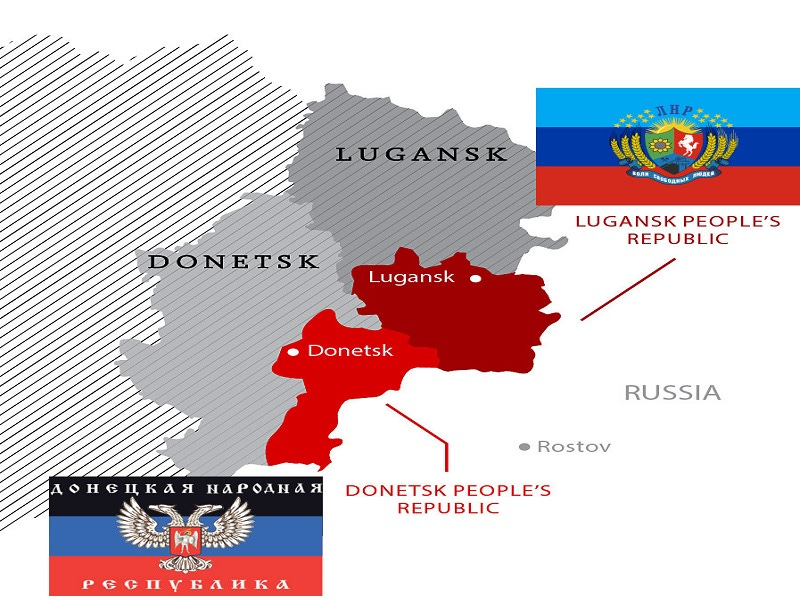




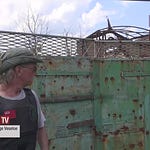
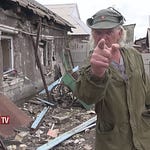

Share this post